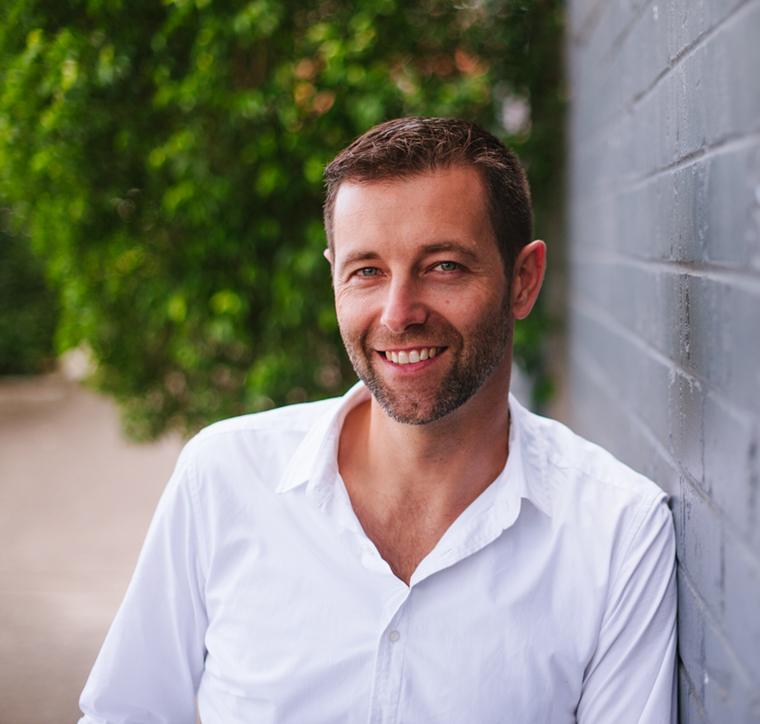Is Pluralism Dead in Australia?
Australia has become an incredibly diverse, cosmopolitan society over the past 50+ years. We are many races, religions and cultures hopefully learning how to live together in freedom and peace. We’re all welcome to retain our cultural and religious story and our nation asks us to celebrate, or at least tolerate the diversity of others with mutual respect. I think for the most part, we do this well and this is the strength of a pluralistic society.Pluralism is where different ideas, beliefs or sources of authority are freely encouraged to coexist in a society. From a Christian standpoint, I used to think pluralism was a dirty word - you know, all that post-modern ‘believe what you want’, ‘truth is all relative’ mumbo jumbo. And while I still squirm at relativism, I realise that pluralism creates a much better atmosphere in which to do life than say, a totalitarian regime like North Korea—where you are told what to believe.
How does pluralism work?
Person A accepts that person B has a different set of beliefs and worldview to them.
Person A accepts that person B has a right to express those views; even when they disagree.
Person B accepts that person A doesn't hold those beliefs.
Person B accepts that person A has a right to not hold those beliefs and express that view.
Pluralism relies on people’s ability to respect each other's differences whether we approve of them or not (within the constraints of what is legal). Yes we can voice our view and we can challenge one another; but pluralism at its best means there are two reasonably mature voices in the room, who moderate their zeal to maintain dialogue toward a mutually acceptable outcome. But is that just an impossible ideal?
The recent British reality show ‘Eden’ was canned after the ratings nose-dived. The social experiment sought to discover what would happen if you could form a simple community of 23 curiously all good-looking twenty-somethings, free from the trappings of modern life. Could you return to an Eden-like state? As you'd expect, it didn't go so well. Over the year, half the participants left and the community was riddled with sexual jealousy and conflict. Sadly, the garden of Eden is long gone because the natural state of the human heart is full of conflict, fear and insecurity—and we inevitably bring that into our relationships.
So I wonder, do we really have the maturity to actually be a pluralistic society? I think the present ‘debate’ on same sex marriage indicates we probably don't. Our media and social media is awash with this subject at the moment with people voicing, or echoing their brilliant case, their knock-out punch to the other side. So much of the language on both ends of this issue is misleading, disparaging and adversarial.
As a Christian right now, the social pressure and indeed manipulation to either say nothing, or say what your audience expects is quite overwhelming. I have people share with me how they are afraid to say anything at all, even to their Christian friends. If your personal view leans toward the ‘yes’ vote, you can expect more than a few fellow Christians to be horrified and you may be called a 'liberal.' But if your view leans toward the ‘no’ vote, you can anticipate being branded as just another homophobic Christian! Or worse, it could be a career limiting move because your employer can't accept your personal convictions. So as a result, many people end up adopting the socially correct line—or saying nothing at all.
I wonder if there is a silent majority of people both Christian and not, who say nothing because the response either way will be well, critical to say the least (and sometimes shades of totalitarian Kim Jong-un).
But then again, perhaps this is just a taste of what LGBTI people have felt from sectors of the Christian community for decades. Perhaps condemning words, moral superiority and unmetered insensitivity has been an exponentially greater sin. Perhaps, in terms of the popular opinion of Australian society, we in the church are reaping what we’ve sown—the stigmatiser has become the stigma now—the labeller has attracted its own labels.
I find it quite sobering that a major reason why same sex couples and families didn't want a plebiscite in any form was because of the expectation that the ‘no’ vote (aka the church) would be promoting more hatred and bigotry. Hatred and bigotry from the people who are supposed to be known by their love! Some believe that the psychological harm argument is just a very clever piece of propaganda, but given the LGBTI community have the highest rates of suicide in the country, I think this concern is something important and to be considered. If there are people in our community who are clearly in pain, our response should be protective and compassionate.
This matter of same sex marriage is an extremely personal one for many people on both sides of the fence. It is too simplistic to say that this is just about modifying the marriage act because we are asking the vast majority of the population to alter the worldview that has been handed down to them uncontested for well, a very, very long time. It’s a view that is deeply ingrained into their religious and cultural traditions and that needs to be acknowledged and respected rather than vilified.
Either way we all need to take a step back, moderate our language and genuinely listen to one another—remembering we are all more than the sum of our political, sexual or theological orientations. And if anyone should be taking the lead on that front—I’d hope it is the Australian Church of which I’m still proud to be a part of.
Is pluralism dead in Australia? I guess that depends what we all do next.












